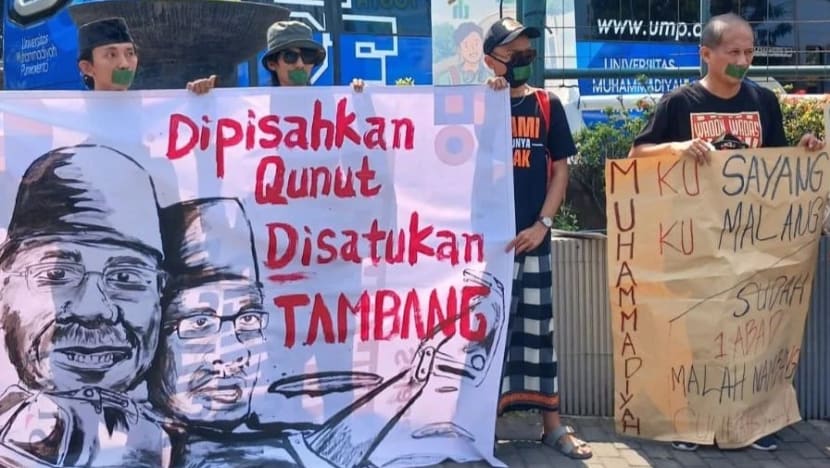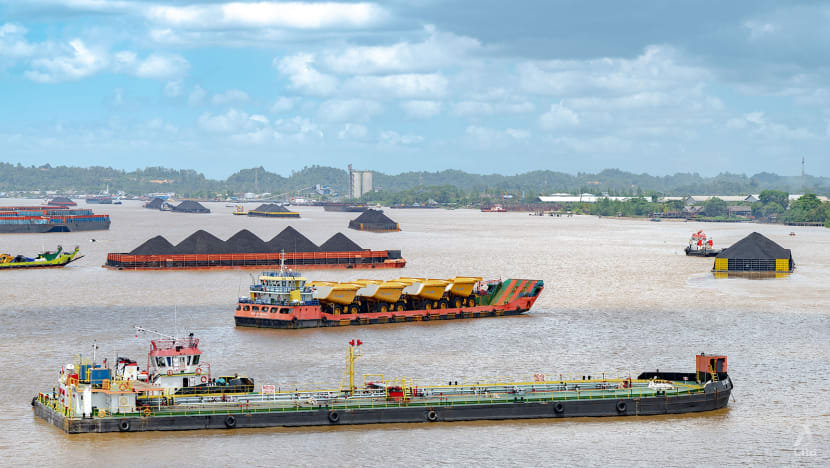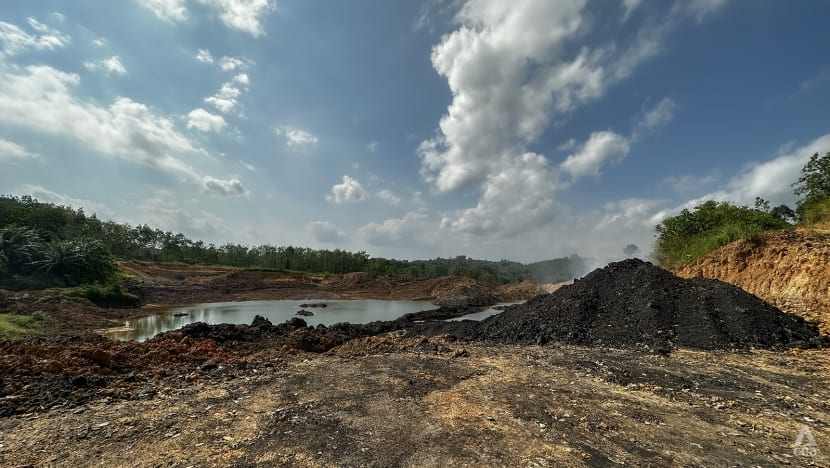Indonesia’s decision to dish out mining permits to religious groups causes internal rifts, slammed by environmentalists
Activists question if religious organisations are suitable entities to operate mines and may trigger greater environmental damage. Some members of the religious groups agree.

A protest against mining permits for religious groups at the 'Aisyiyah Yogyakarta University. (Photo: Instagram/ Kader Hijau Muhammadiyah)

This audio is generated by an AI tool.
JAKARTA: Indonesia's controversial decision to let religious community organisations manage mining concessions has led to rifts within the country’s two largest Islamic organisations even as their leaders have signalled support for the policy.
The central leadership board of the country’s second-largest Islamic group, Muhammadiyah, announced on Sunday (Jul 28) its approval of the government’s policy after months of deliberation.
Muhammadiyah general secretary Abdul Mu'ti said at a press conference that the organisation is now prepared to accept mining concessions to operate state-owned mines.
Its decision follows that of the country’s largest Islamic group, Nahdlatul Ulama, which expressed its support about a week after President Joko Widodo’s administration introduced the policy in May. The two groups have an estimated total of over 100 million followers in Indonesia, the world’s largest Muslim-majority country.
Critics have slammed the government’s policy as a move by Mr Widodo to reward the religious groups that mobilised support for his perceived candidate of choice in February’s presidential election.
Although Mr Widodo stopped short of endorsing his defence minister Prabowo Subianto in the election, his administration announced public programmes that were widely seen to favour Mr Prabowo, whose vice-presidential partner is Mr Widodo’s son Gibran Rakabuming Raka. Mr Prabowo went on to win the Feb 14 election by a landslide.
Environmental groups questioned if religious organisations are suitable entities to operate mines and warned of the potential to trigger greater environmental damage.
Religious organisations may antagonise local communities when negative impacts of mining activities arise, some activists noted.
Environmentalists have also criticised the religious groups’ support for the policy. Civil society group Cik Di Tiro staged a protest last Saturday at 'Aisyiyah Yogyakarta University, urging Muhammadiyah to reject the mining offer.
Non-governmental organisation (NGO) Mining Advocacy Network’s (JATAM) campaigner Alfarhat Kasman said Muhammadiyah's narrative of wanting to develop an environmentally-friendly mining model was an empty promise.
There is no mining operation that does not damage the environment, water and food sources of local communities, he was quoted as saying by BBC Indonesia.

OPPOSITION FROM GRASSROOTS
Some factions and grassroots members of NU and Muhammadiyah similarly oppose the policy.
Muhammadiyah’s central executive chairman Busyro Muqoddas, who is a former commissioner of the Corruption Eradication Commission, has been vocal in opposing the mining management licences, citing environmental concerns.
According to a report by news outlet Tempo, he warned his colleagues not to be carried away by some success stories of mining activities.
Muhammadiyah’s committee on law and human rights has openly asked for an assessment of the environmental impact of coal mining.
Muhammadiyah's environmental arm, Green Cadre, has expressed disappointment and the fear that the policy could undermine its initiatives to protect the environment.
As for NU, 68 members who are alumni of Universitas Gadjah Mada (UGM) rejected in June the granting of mining permits or concessions.
"We ask the government to cancel the granting of mining licences for religious organisations," said their spokesperson Slamet Tohari, as reported by Tempo.
Just three years ago at its 2021 congress, NU had recommended that the government stop building coal-fired power plants and reduce coal production from 2022 to accelerate the transition to clean energy. Coal is the most pollutive of fossil fuels and its extraction leads to the loss of forests and can cause land and water degradation.
SOME RELIGIOUS GROUPS REJECT POLICY
In supporting the government’s new policy on mining permits, NU executive chairman Yahya Cholil Staquf said it needs funds for various programmes and infrastructure. According to news outlet Jakarta Globe, NU is set to get a coal mine that used to be operated by Kaltim Prima Coal, a subsidiary of conglomerate Bakrie Group’s Bumi Resources.
Another Muslim organisation that has welcomed the policy is Persatuan Islam (Persis).
Mining licences are also open to organisations that represent Indonesia’s other main religions including Christianity, Hinduism and Buddhism, but some of them have not taken a clear stand while others have rejected the offer.

A Hindu organisation, Parisada Hindu Dharma, has voiced support for the policy as long as it is fair and equitable.
The Representative of Indonesian Buddhists (Walubi) said it has not received a mining permit offer from the government, and has not taken a position on the policy.
Two Christian groups, the Fellowship of Churches in Indonesia (PGI) and the Indonesian Bishops Conference (KWI), have rejected the offer.
PGI executive secretary for justice and peace Henrek Lokra said the mining business is outside PGI's ministry mandate while KWI secretary Marthen Jenarut said the group’s focus is its religious mission and not mining activities.
The government has defended the policy, with Investment Minister Bahlil Lahadalia saying the religious groups could set a positive example.
Dismissing concerns about their lack of experience, he said: "People tend to see things in a negative light. Many ask, how can (these faith groups) manage the mines without any experience? Now let me ask you this: Did actual businessmen already have mines before they started their mining business?"
In a Jakarta Globe report, he suggested that some mines have historically been poorly managed and added: "I believe these religious groups can set an example to other investors on how to manage the mines sustainably."
















